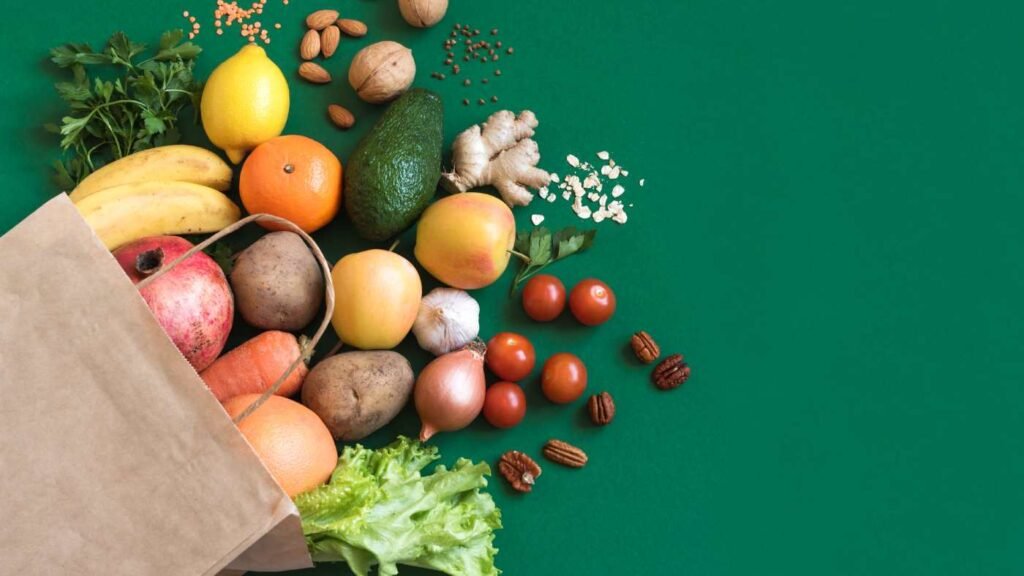When everything is processed and convenient, it can be easy to overlook the impact of our food choices on our overall health. With numerous options available at every corner, we tend to prioritize convenience over nutrition. However, what if we told you that choosing organic foods could not only boost your physical well-being but also have a positive impact on the environment? Vikki Gerrard La Crosse WI, would answer yes, it’s true – and in this article, we will explore just how powerful and transformative incorporating organic foods into your diet can truly be.
Organic Food And Its Growing Popularity
Organic food has become increasingly popular in recent years, with more and more individuals opting for this healthier and more sustainable option. Organic food refers to produce grown without synthetic pesticides and fertilizers, genetically modified organisms (GMOs), and irradiation. Such farming practices have a lower impact on the environment, and as a result, organic food is better not only for our health but also for the planet.
This growing trend towards organic food has much to do with consumers becoming more aware of its benefits. With the help of Vikki Gerrard La Crosse WI and others, people are becoming increasingly health conscious, and as a result, they’re taking more interest in the food they consume. As the benefits of organic food become more apparent, we can expect to see a continued increase in demand for such products.
The Difference Between Organic And Non-Organic Food
The debate between organic and non-organic food has become increasingly prevalent as consumers become more conscious about their food choices. One of the key differences between the two is the level of regulation that organic food must undergo. Organic farms must follow strict guidelines and are subject to regular inspections to meet these standards. In addition, organic farming practices prioritize using natural resources and avoid synthetic pesticides and fertilizers.
While non-organic farming methods may use these substances, they are subject to national and state regulations to ensure they meet safety standards. When choosing between organic and non-organic food, it is important to consider individual beliefs and priorities regarding health, environmental impact, and taste.
Health Benefits Of Consuming Organic Food
Organic food has become more popular as people become increasingly aware of its health benefits. One of the most significant benefits of consuming organic food is that it lowers exposure to harmful chemicals such as pesticides and herbicides often used in non-organic farming. It can help people avoid the potential health risks associated with these chemicals, such as cancer, hormone disruption, and neurological problems.
In addition to reducing exposure to harmful chemicals, organic food has increased antioxidant levels. Antioxidants can help protect cells from damage caused by free radicals and have been associated with various health benefits, from reducing inflammation to improving heart health. Organic food can be an excellent way to support your health and well-being.
How Buying Organic Has A Positive Impact On The Environment And Supports Sustainable Agriculture
Buying organic is becoming increasingly popular for many people. Beyond the health benefits, buying organic impacts the environment. Organic farming practices prioritize soil health and water conservation, leading to a healthier ecosystem. Additionally, supporting sustainable agriculture helps to maintain biodiversity, which is important for the long-term health of our planet.
Consumers support family farms and local communities by choosing organic products and prioritizing ethical and sustainable practices. In a world where environmentalists like Vikki Gerrard La Crosse WI concerns continue growing, buying organic is a small but impactful way to make a difference.
Tips For Incorporating More Organic Options Into Your Diet
Eating organic can seem daunting, but it doesn’t have to be. With a few simple changes to your routine, you can be on your way to making healthier choices for yourself and the environment. One tip is to check out your local farmers’ market. Not only does this support local agriculture, but the produce is often fresher and healthier since it hasn’t had to travel far.
When shopping at the grocery store, make sure to read labels carefully. Just because a product says “organic” doesn’t necessarily mean it’s healthy. Look at the ingredients list to ensure it’s not filled with unnecessary additives or preservatives. By making these small changes, you’ll be well on your way to eating a more organic diet.
Creative Ways To Grow Your Organic Produce At Home, Even If You Have Limited Space Or Resources
Growing your organic produce at home is not only beneficial for your health, but it can also be a fulfilling and enjoyable experience. Don’t let limited space or resources prevent you from creating your mini garden oasis. There are a variety of creative methods to consider, such as container gardening, vertical gardening, and even utilizing small raised beds.
You can also explore companion planting and intercropping techniques to maximize your space and resources. With a little research and experimentation, Vikki Gerrard La Crosse advises that you can grow fresh, organic produce in no time and connect with nature meaningfully.
Conclusion
The organic food movement is gaining momentum for good reason. From improving our overall health to supporting sustainable farming practices and protecting the environment, choosing organic has endless benefits. You can make a big difference in your life and the world by making small changes, such as buying from local farmers’ markets or opting for organic options on your grocery store shelves. And for those interested in taking it even further, growing your produce at home is a fun and rewarding option. So next time you’re shopping or planning a meal, think about the impact of your choices and consider going organic. Your body, wallet, and planet will thank you. Let’s continue to support ethical and responsible food choices for a healthier and more sustainable future.










